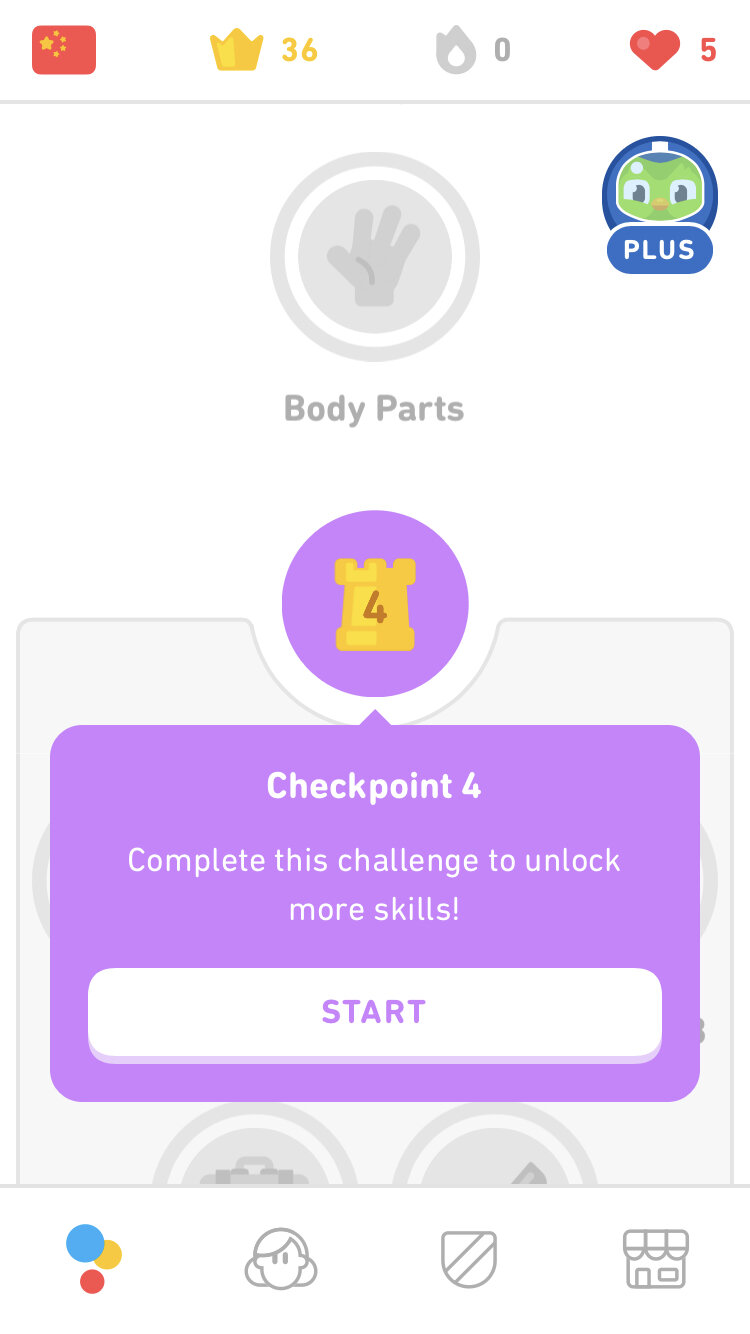The other day, I heard from someone who’s got a 1336 day Duolingo streak in French. That’s over 3 years of daily mini-lessons in another language, and a guaranteed confidence boost for her the next time she wants to say something in French.
Duolingo is award-winning, market-leading, venture-funded and impossible to ignore, so I got together with my podcast co-host Lindsay to collect a bunch of unmissable Duolingo tips for you.
Want to hear our discussion? Listen to our episode of the Fluent Show podcast to learn more:
Note: This is not a review of Duolingo Plus. Personally, I have not signed up to Duolingo Plus but my impression is that it can be a worthwhile investment if you want to skip the many ads and give yourself offline access.
Why Download Duolingo for Exploring Another Language?
Duolingo has also come a long way since it first started out. Here are just a few good reasons to download Duolingo and try it out:
- The app is free and it works on every mobile device
- The range of languages is great, with lots of small languages and even constructed languages such as Esperanto and Klingon. Switch your source language to access even more courses in unusual languages, such as Guarani and Catalan through Spanish.
- When you practice your language with Duolingo, there’s no judgement and no risk of embarrassment in front of other people. Great for shy learners!
- Duolingo offers lots of reasons to come back to the app - it rewards your usage with virtual coins and hot outfits for its mascot, Duo the owl
- The cute design and bite-sized lesson style makes Duolingo feel very different to learning a language with a big textbook or 20-week evening class
Tips for Learning a Language with Duolingo
Some people love to commit to the Duolingo language learning streak. Some ignore the streaks completely. Don’t worry, both ways will work just perfectly for who you are.
Adding up a long, long streak alone is not what will teach you a language. But it will keep you connected and interested. You need to make sure that you are combining Duolingo with a productive language learning routine if you want to speak your language in real life. Break out from the apps now and then and get curious about what people who speak your target language like to eat, watch, listen to, and what the world is like for them.
If you do NOTHING else, make sure you download at least one more language learning app to your phone. You want to enjoy a bit of variety every day, and the range of great apps is huge these days. (Need inspiration? Check out our Top Tools Hall of Fame.)
Make More of Your Experience With Our Duolingo Tips
Get Unlimited Hearts:
Use the "Practice" button to get unlimited hearts and review what you've learnt before, without having to watch more ads or sign up for the paid version of the app. This is great if you don’t want to run out of practice time yet.
Take it Out of Duolingo
Got a notebook? Write down sentences from Duolingo lessons by hand or start your own digital practice folder. This will take all those sentences you are learning out of the app environment and help you use them in conversations with real people.
Don’t Miss the Tips
Finally the Duolingo tips are available on the app! These helpful explanations have long been a bonus for web version users, but you can now get Duolingo tips right in the app. If you make the same mistake again and again, the tips will help you understand why.
Use Duolingo as a Level Checker
If you are studying a language outside of this app, you can use it to check your learning progress. Simply jump to the next “Checkpoint” feature in the app and see if you can skip to the next level. If you fall short, you know you’re working on suitable lessons for your level.
Discover Duolingo Stories
Duolingo now offers mini stories in a very limited number of its courses. These little stories are essential practice to help you learn more for longer and break out of the rut of “Sally and Juan go to the market to buy apples” again and again.
Boost Your Gems with Extra Features
Motivated to get more gems? Want to keep that streak going and going? Use the Streak Freeze and Double or Nothing features to boost your gems and keep that momentum for longer.
If you find the streaks too stressful, don’t worry. Here are my tips for becoming a consistent learner without any language apps.
Check the Forums
Duolingo’s community features are limited, but the community of users is fantastic! They make vocab lists and explanations based on the courses and give advice to users from around the world. Start with this unofficial Wiki and FAQ page
Want to Take Your Language Learning to the Next Level?
Your first stop is the Fluent Show, my awesome language learning podcast where we talk about loving, living and learning languages. This show will give you lots of inspiration and ideas.
If you struggle with motivation and routine in your language, check out the Language Habit Toolkit. It’s a proven system to help you set and achieve every language goal you create for yourself. The Language Habit Toolkit works with any language and any course so it’s perfect if you want to boost your Duolingo results.
My Duolingo History
I cannot remember the first time I downloaded the Duolingo app, but I know it wasn’t love at first sight. I had studied French all the way to an undergraduate degree in the UK and thought it might be a fun way to get in touch with this language.
Working my way through my first ever Duolingo exercises in 2014 was bewildering. I had not used a language app before and I didn’t understand how these disjointed, mechanical sentences were supposed to keep me excited about a language.
Over time, I learnt more about language apps as a general concept. They play an important role in getting 10,000s of people started with a new language. When I started learning Welsh, it was a great resource for quick exercises in my new language.
I’ve now completed the Duolingo skill trees in French and Welsh, and am about 30% through the Mandarin Chinese skill tree. I’ve also tried it out in a bunch of other languages like Esperanto and Spanish.




